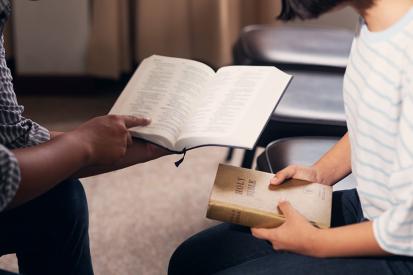Oregon Governor Dropped Discriminatory COVID Rule After ADF Lawsuit


The COVID-19 pandemic tested Americans’ durability—our ability to work, maintain friendships, and enjoy life in the midst of hard times. But it also tested whether the U.S. Constitution could hold up in times of duress.
Some government officials seemed to believe that they could suspend the Constitution during a pandemic, testing the limits of religious freedom. One of the most egregious examples came from Oregon, where an order from Gov. Kate Brown threatened private schools with penalties for reopening in-person instruction, while public schools of a similar size faced no such penalties.
Alliance Defending Freedom filed a lawsuit on behalf of Hermiston Christian School to challenge the discrimination, and after a few months the case was dismissed when Gov. Brown revised the policy.
Private schools targeted while public schools exempted
For months, government officials told Hermiston Christian School that it could reopen if it abided by health guidelines. And in good faith, the school spent money to prepare for its fall reopening in compliance with those guidelines. It reassured parents that the school would reopen, and it retained its teachers and staff. Then, the state moved the metaphorical goalposts for reopening—goalposts that are outside the school’s control and relate to health metrics in the school’s county.
But here’s the kicker: rather than uniformly apply these standards to all schools in the affected counties, the government exempted some small public schools, allowing them to move forward with opening as planned.
While the government allowed small public schools with fewer than 75 students to open, it told private schools of the same size that they must remain closed.
Students attending public school in the local Ukiah School District were able to go back to school in person. Meanwhile, Hermiston Christian School had to remain closed, or its leadership would face jail time and fines—even though it was in the same county as Ukiah School District and served a similar number of students, performed the same types of activities, operated in an even larger physical environment, and abided by the same health and safety protocols.
That’s why ADF represented Hermiston Christian School in a lawsuit against the government officials who singled out private schools to be shut down.
Bringing an end to unjust targeting
How is it that small public schools were allowed to open, but small Christian private schools had to remain closed? We don’t have to wonder. When asked why private schools were closed, a policy adviser for Gov. Brown discussed the potential for a “mass exodus” from public schools and a reduction of public-school funding that might occur if parents disenrolled from public schools and sought in-person education elsewhere.
Allowing public schools in the Ukiah School District to reopen but not its private counterparts is a case of the government attempting to squash private Christian education. This is unconstitutional. Religious institutions cannot be treated worse, nor can parents be precluded from directing the upbringing and education of their children.
After we filed our lawsuit, Gov. Brown issued new guidelines. But the new rules were still unconstitutional. Eventually, however, the governor revised the mandate, eliminating the special exceptions for public schools and allowing Christian schools like Hermiston to reopen for in-person education.
After the governor changed the unconstitutional policy, ADF attorneys withdrew the lawsuit.
Hermiston Christian School v. Brown
- October 2020: ADF attorneys filed a lawsuit on behalf of Hermiston Christian School.
- February 2021: ADF attorneys withdrew the lawsuit after Gov. Brown eliminated the special exceptions for public schools and allowed Christian schools like Hermiston to open for in-person instruction.
